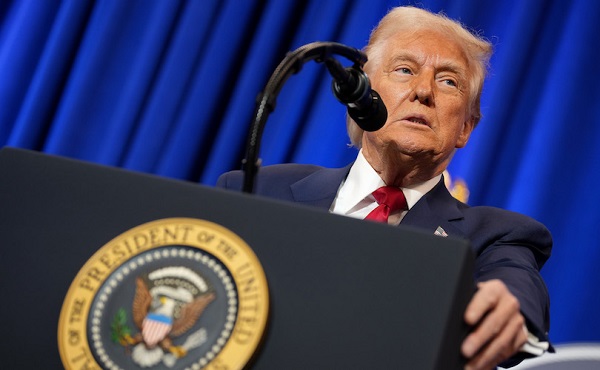Business
Trudeau billed taxpayers $81,000 for groceries in one year
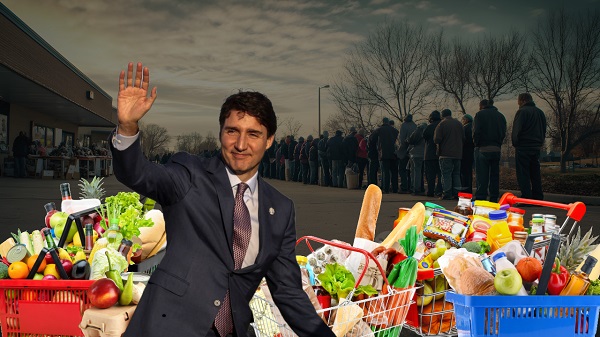
By Ryan Thorpe
Prime Minister Justin Trudeau billed taxpayers for $157,642 in household food expenses over a two-year period, according to access-to-information records obtained by the Canadian Taxpayers Federation.
“The fact that Trudeau spent more on food than what the average Canadian worker makes in an entire year is outrageous,” said Franco Terrazzano, CTF Federal Director. “Here’s a crazy idea: how about the prime minister pays for their own groceries like everyone else.”
Trudeau billed taxpayers $81,428 in 2022-23 and $76,214 in 2021-22, the latest years for which records are available.
The CTF filed an access-to-information request seeking “records showing total spending on household groceries for Prime Minister Justin Trudeau.”
The Privy Council Office released records to the CTF showing Trudeau expensed $188,864 for “food and food preparation” during the 2021-22 and 2022-23 fiscal years.
Taxpayers were forced to pay $157,642 (or 83 per cent) of the total cost.
For the sake of comparison, the average Canadian family spent a combined $29,989 on groceries during the 2022 and 2023 calendar years, according to Canada’s Food Price Report.
That works out to an average grocery bill of $288 per week.
Meanwhile, Trudeau billed taxpayers for an average of $1,515 in household food expenses per week – five times more than what the average family spends.
“The prime minister reimburses amounts related to food based on Statistics Canada data on household spending, which is adjusted using the consumer price index to account for inflation,” according to the records.
In 2022-23, Trudeau racked up $97,645 in grocery expenses, with taxpayers forced to pay $81,428.
In 2021-22, Trudeau racked up $91,218 in grocery expenses, with taxpayers forced to pay $76,214.
“Expenditures include all food related expenses incurred by the Prime Minister’s Residence,” according to the records. “In addition to household groceries, it also includes food expenditures for events that are hosted at the residence.”
The records do not make clear how much was spent on personal groceries versus event-related expenditures.
“It’s one thing for the prime minister to bill taxpayers for government business, but taxpayers shouldn’t be on the hook for a single cent of the prime minister’s personal groceries,” Terrazzano said. “The current policy needs to change, the government needs to improve transparency on this spending and anyone who wants to be the next prime minister needs to commit to not billing taxpayers for their personal groceries.”
The prime minister’s annual salary is $406,200. The average Canadian worker’s annual salary is about $70,000, according to Statistics Canada data.
Taxpayers also paid for Trudeau’s personal chef. The prime minister’s personal chef took home an annual, taxpayer-funded salary between $68,468 and $79,234.
Between 2015 and 2022, taxpayers were on the hook for an average of $57,538 per year for Trudeau’s household groceries, according to previous reporting from the National Post.
The Official Residence for Canada’s prime minister is 24 Sussex. But Trudeau has lived at Rideau Cottage – a two-storey, 22-room mansion on the grounds of Rideau Hall – since becoming prime minister in 2015.
However, Trudeau’s meals have continued to be prepared at 24 Sussex, then shipped to Rideau Cottage via courier, according to the National Post.
“While Canadians have been tightening their belts during a cost-of-living crisis, Trudeau was sparing no expense,” Terrazzano said. “The prime minister’s salary is nearly six times more than the average Canadian’s and he lives in a taxpayer-funded mansion, so surely he doesn’t need to stick taxpayers with huge grocery bills.”
Business
How the feds blew your money this week
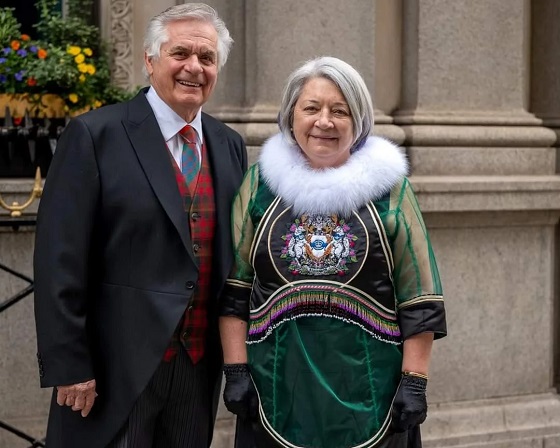
The Governor General’s closet: A queen’s dream and a taxpayers’ nightmare
Governor General Mary Simon is spending your money like it’s her personal fund for Buckingham Palace’s boutique.
The governor general dipped into her taxpayer piggy bank (a.k.a. your wallet) to fund her shoe collection — six new pairs in 12 months — and is even charging you for her undergarments.
You read that right. Apparently, hundreds of dollars in silk undergarments are now considered essential to public services.
Simon spent $330 of taxpayers’ money on silk camisoles, $1,117 on shoes, $875 on a single blazer, $1,500 on a “sealskin chest piece” and $2,510 on luxury wool suits during the last fiscal year.
Simon spent $144 on a “black dress cardigan.” The “value of the item” according to the expense sheet is half that, listed at only $72. Is there anything the government doesn’t go overbudget on?
It’s very rare for any minister or prime minister to expense clothing. Only two ministers expensed apparel last year — each less than $300 for work boots for an event at a construction site.
Simon billed you for a total of $7,576 on shoes and clothing last year.
Simon’s annual salary is $378,000 a year. Let’s just say she doesn’t need to force you to pay for her clothes.
And that’s not all! Simon’s expansive wardrobe isn’t the only way the governor general’s office is draining the public purse.
Her lavish wardrobe is just the start of the spending spree. Since her appointment, she spent more than $120,000 on speech writers — and don’t get us started on her crazy travel expenses.
Simon has been enjoying mile-high catering — meals on airplanes include beef Wellington, carpaccio, stuffed pork tenderloin and hundreds of dollars on lemons, limes and bottled water. The list goes on.
Simon and her entourage billed you about $100,000 for airplane food during their week-long trip to the Middle East. A separate four-day trip to Germany totaled $103,000 in catering costs. She also spent hundreds of dollars on flowers to go along with the lavish meals.
All on your dime.
Oh, and the cost of those trips totalled $1 million and $700,000, respectively.
Simon also famously spent $71,000 at “Icelimo Luxury Travel” during a four-day trip to Iceland. The total bill for that trip cost taxpayers $298,000.
In fact, the governor general’s travel during her first year in office cost you almost $3 million.
Why is she even going on these far-flung excursions? The governor general’s role is to represent the monarchy here in Canada.
When was the last time you took your family on a vacation? Next time you agonize over fuel or air travel costs, remember you’re already footing the bill for an unelected figurehead’s opulent jet-setting.
The worst part of all this? The governor general’s flamboyant spending is all within rules laid out by the federal government.
Governors general can bill you up to $130,000 on clothes over their five-year term.
And all those posh clothes need cleaning, right? The governor general’s office spent $117,000 on professional dry-cleaning services since 2018, despite having staff dedicated to doing the laundry.
That works out to more than $1,800 per month spent on dry cleaning.
It’s time to close the royal boutique and stop treating taxpayers like an unlimited credit card.
Franco’s note: I just want to give a shout out to the great investigative news outlet, Blacklock’s Reporter. They were the first outlet to report on this spending. And that’s not the only big taxpayer story they uncovered this week. Check this one out: https://www.blacklocks.ca/d-e-
Carney shrinks from pro-active cuts — lets bureaucrats retire themselves
The Canadian Taxpayers Federation called out Prime Minister Mark Carney for his lackadaisical approach to Ottawa’s bureaucracy.
Carney needs to cut staff, not just wait for them to retire.
Here’s the back story:
The federal bureaucracy ballooned disproportionately under the Trudeau Liberals. Carney’s predecessor added nearly 100,000 paper pushers during his decade-long tenure.
The federal bureaucracy cost taxpayers $71.1 billion in 2024-25 — a 77 per cent increase from the $40.2 billion expense in 2016-17.
Enter Mark Carney, armed with a plan … based on inaction and procrastination.
The prime minister said he’s directed federal departments and Crown corporations to cut up to 15 per cent of their budgets over the next few years. He also claimed he would “balance the operating budget by Budget 2028.”
That seemed like a promising start — until Carney announced the cuts would “happen naturally through attrition.”
The bureaucracy now consumes about 55 per cent of the operating budget. And quality of service is decreasing.
Half of Canadians think services are worse than in 2016, according to a Leger poll commissioned by the CTF. Only 11 per cent say they’re better — proving the bureaucracy isn’t shrinking, it’s suffocating.
The poll showed most Canadians want to see the federal bureaucracy cut.
We’ll keep fighting for real cuts — not just a slow march to retirement.
Video: Carney clueless about his own gun confiscation
Carney called his gun confiscation “voluntary.”
Except the federal government announced a list of banned guns that many Canadians had stored in their homes.
Those firearms are suddenly illegal.
The Carney government plans to confiscate them in exchange for compensation. The penalty for illegal possession of a prohibited firearm under the Criminal Code is up to five years in jail.
And taxpayers like you are forced to pay those law-abiding Canadians after the government seizes their property.
“We’re not confiscating guns,” Carney said. “[It’s] an opportunity for Canadians to return guns for compensation.”
What does that mean? Taxpayers have questions.
The CTF’s Gage Haubrich and Kris Sims break it down in the video below and offer Carney an easy solution: scrap the gun ban and confiscation scheme.
Agriculture
Ottawa’s EV Gamble Just Cost Canola Farmers Billions

From the Frontier Centre for Public Policy
By Conrad Eder
Ottawa’s EV subsidies have backfired. Western Canada’s canola farmers are the latest victims of misguided government industrial policy
Economic policy is more like gardening than engineering. You can shovel all the money you want into trying to grow coconuts in a Canadian winter, but you’ll achieve far better results—and feed many more people—by planting potatoes in the spring and letting nature run its course.
For Canada, that means embracing policies that create fertile ground for all businesses to compete, innovate, and serve consumers. Ottawa, unfortunately, prefers to play God with the weather. What began as economic tinkering has triggered a cascade of interventions now devastating Canada’s canola industry.
Rather than letting the market determine Canada’s strengths, federal and provincial politicians decided they knew better, wagering $52.5 billion to lure EV and battery manufacturers to Canada. Massive public subsidies were placed on a handful of firms and technologies.
The Parliamentary Budget Officer delivered a sobering assessment of this boondoggle: it could take decades for taxpayers to break even on these subsidies—and only if nothing goes sideways.
Well, you know what they say about best-laid plans.
After committing billions, Ottawa faced an awkward truth: Chinese manufacturers were eating our lunch, offering EVs at lower prices, thanks in part to their own subsidies. Instead of reversing course, Ottawa hit the panic button and slapped a 100 per cent tariff on Chinese EVs.
Let’s be clear: this wasn’t about national security or consumer protection. It was about salvaging one of the largest industrial bets in Canadian history.
Yes, some sectors require targeted oversight to protect privacy and safety. EVs aren’t one of them. Their risks can be managed with targeted regulations and technical safeguards. But the tariffs do real damage by blocking affordable EVs and denying Canadians the right to judge for themselves.
Predictably, China didn’t take the tariffs lying down. In March, Beijing slapped 100 per cent duties on Canadian canola oil. In August, it hit canola seed with 75.8 per cent tariffs, effectively shutting out Canadian farmers from a $4.9-billion market.
Ninety-nine per cent of canola fields are in Western Canada. Canola is Canada’s top crop export, supporting tens of thousands of Prairie jobs and generating over $43 billion annually.
Another trade war, another lose-lose. Canadians pay more for EVs. Chinese consumers pay more for food.
And now, predictably, agricultural lobbyists are seeking Ottawa’s help. The government—having started the fire—has responded with $370 million in biofuel incentives and expanded financial support for canola producers. More subsidies. More distortion. Another Band-Aid for another self-inflicted wound.
Ironically, Canada’s farm sector already receives substantial government support. Now it’s receiving even more just to survive Ottawa’s protection of a separate subsidized industry. That’s the trouble with industrial policy: helping one sector often means hurting another. And taxpayers get the privilege of funding both.
There’s a better way forward: it doesn’t involve doubling down on mistakes. The solution is to stop the engineering and let the economy breathe. Lower taxes. Fewer regulations. Neutral infrastructure investment. These create the conditions for businesses to rise or fall on merit. That’s how innovation flourishes: through competition, not cabinet-level favouritism.
It’s not hard to follow the dominoes. EV subsidies triggered Chinese tariffs. Tariffs triggered canola retaliation. Canola retaliation now triggers demands for bailouts.
One attempt to pick winners has manufactured a long list of losers.
Had Ottawa stuck with free-trade principles, Canadians could’ve had more affordable EVs, taxpayers would’ve saved billions, and canola farmers would still have access to a vital export market.
Instead, we get a chain reaction of policy “fixes,” each one compensating for the damage done by the last—each one digging the hole deeper.
When governments try to engineer economic outcomes, citizens foot the bill. The real lesson? Governments are great at creating problems. Markets are better at solving them.
If Canada wants a prosperous economic future, it must stop betting the farm on political hunches and let competitive markets do the cultivating.
Conrad Eder is a policy analyst at the Frontier Centre for Public Policy.
-
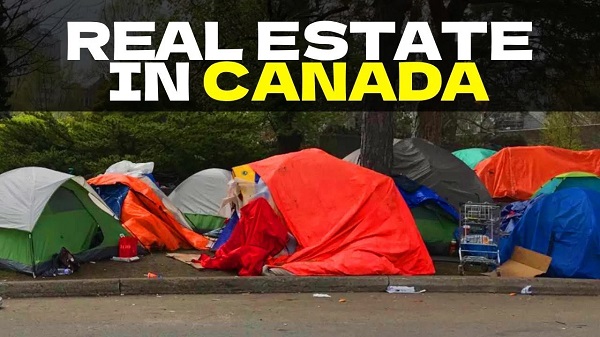
 Bruce Dowbiggin2 days ago
Bruce Dowbiggin2 days agoCarney’s Housing Meltdown: Building A Mystery
-

 Business2 days ago
Business2 days agoCanada’s ‘supply management’ system makes milk twice as expensive and favours affluent dairy farms
-
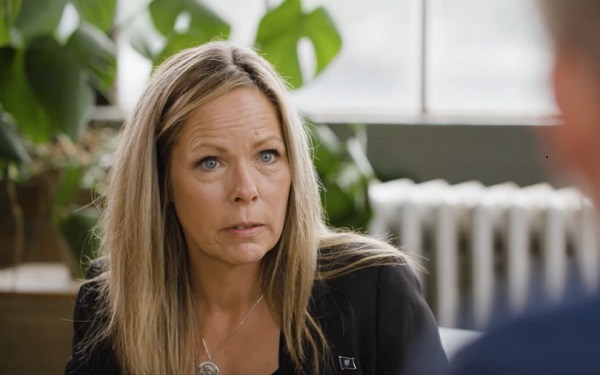
 COVID-192 days ago
COVID-192 days agoFreedom Convoy leader Tamara Lich puts her ‘trust’ in Jesus while awaiting sentencing
-

 Alberta23 hours ago
Alberta23 hours agoNo Permission Required: Alberta Will Protect Its Daughters
-

 Business23 hours ago
Business23 hours agoEnergy leaders send this letter urging Prime Minister Mark Carney to unlock Canada’s resources
-

 COVID-1923 hours ago
COVID-1923 hours agoQuebec ends free distribution of COVID shots
-

 International1 day ago
International1 day agoTrump vows to reclaim Afghanistan air base after Biden’s botched exit
-

 Agriculture15 hours ago
Agriculture15 hours agoOttawa’s EV Gamble Just Cost Canola Farmers Billions



